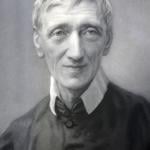Washington D.C., Dec 2, 2016 / 02:11 pm (CNA/EWTN News).- The Supreme Court heard oral arguments Tuesday in a death penalty case that could determine the fate of a man whom lawyers say is intellectually disabled. The legal issue in question, said Robert Dunham, executive director of the Death Penalty Information Center, is “did Texas violate the Eighth Amendment when it disregarded the national consensus definition” of intellectual disability and “substituted a non-clinical” standard in its place? In Moore v. Texas, the petitioner Bobby James Moore was convicted of robbery and murder in Texas in 1980, after killing a convenience store employee in a robbery attempt. He was convicted again in a retrial in 2001. He is challenging the state’s criminal appeals court’s ruling that he merits the death penalty. His lawyers claim that by clinical standards, he is intellectually disabled and thus protected from capital punishment. The Supreme Court previously ruled in Atkins v. Virginia that the Eighth Amendment, which prohibits “cruel and unusual punishment,” protects intellectually disabled persons from being put to death. Texas’ criminal appeals court, however, had ruled that Moore should be judged by the standards that existed at the time of his 2001 conviction, not by the most recent clinical standards. Moore’s disability was determined by the state’s 2004 Briseno decision, which established additional “Briseno factors” to determine if someone was intellectually disabled, and thus ineligible for the death penalty. “For the most part,” Dunham explained, “states simply follow the clinical definitions [of intellectual disability] and then they have their own procedural rules for what evidence you can present and what the standard of proof is.” However, he added, “a number of states” then “came up with very restrictive rules on proving intellectual disability.” And, “in a couple of instances, they deviated from the clinical definitions of intellectual disability in significant ways.” Texas is one of these cases, he argued. The “national consensus” proof of intellectual disability relies on three prongs: a “significantly sub-average intellectual function,” proof of “adaptive deficits,” and whether the “age of onset” was before age 18, Dunham explained. However, with the “Briseno factors” that Texas added to this test, there are additional questions to the three-pronged standard like whether someone’s neighbors or teachers think them to be disabled, if they are able to lie, and if they are able to plan out a crime. Scott Keller, the Texas Solicitor General representing the state before the Supreme Court, told the justices that these questions are not discriminatory, but are meant to provide “more concrete terms” for determining if someone met one of the three prongs – “limitations in adaptive functioning” – of the intellectual disability test. Dunham, however, claimed that these questions utilize a “non-clinical standard” which asks “a bunch of stereotypical questions a layperson would ask to determine intellectual disability.” Some of the questions are “derived from Lenny of ‘Of Mice and Men,’” a fictional character in a John Steinbeck novel, he added. Ultimately, he claimed, these questions “appear to be a gloss that Texas is placing over the clinical definition” of intellectual disability. Thus, the state is using a non-clinical standard to ultimately determine who will be executed, he said. Both the American Psychological and Psychiatric Associations agree, stating in their brief supporting Moore’s case that “there is a consensus among the mental health professions about how properly to diagnose persons with intellectual disability. Texas’ approach to intellectual disability is inconsistent with this consensus.” In a recent death penalty case, Hall v. Florida, the state of Florida had set an IQ score of 70 as a benchmark in determining if someone was intellectually disabled. However, “the clinical community generally considers an IQ of 75 or below to be a qualifying score,” Dunham noted. Thus, he said, the Supreme Court ruled that Florida “deviated from the established national consensus,” and “did so in a way that allows the execution of individuals who, under clinical practice, would be intellectually disabled,” violating both its ruling in Atkins and the Eighth Amendment. Texas has done a similar thing, he said. In adding this “non-clinical standard” of the Briseno factors as an additional burden of proof that someone is intellectually disabled, “Texas has deviated from the clinical consensus definition of what constitutes an adaptive deficit,” he claimed. He said the state “includes as eligible” for the death penalty “a range of people who would be deemed as intellectually disabled” under the commonly-accepted clinical method. For instance, the state in 2012 used the Briseno factors and determined that Marvin Wilson, a man who scored a 61 on an IQ test, was eligible for the death penalty. And, Dunham added, Texas only uses the Briseno Factors in death penalty cases. For other cases, like with applications for Social Services, Texas relies upon other clinical methods. In October, Texas’ bishops called for “the abolition of the death penalty.” “Catholic teaching unequivocally states that ‘if non-lethal means are sufficient to defend and protect people’s safety from the aggressor, authority will limit itself to such means’,” they stated, citing the Catechism of the Catholic Church paragraph 2267. “This simply means if alternatives to the death penalty exist that serve to protect society from violent criminals, society ‘must limit itself’ to these other means. There can be no doubt such means exist today in the United States, including in the State of Texas,” they continued. Clifford Sloan, arguing on Moore’s behalf before the Supreme Court on Tuesday, said the standard upheld by Texas’ criminal court “relies on harmful and inappropriate lay stereotypes.” Justice Elena Kagan remarked to Sloan that “we could say that the Briseno standards are in conflict with the old Atkins standards, as well as the new ones.” “There wouldn't need to be a difference between the old ones and the new ones for you to win this case,” she told Moore’s lawyer, who agreed. The justices then asked tough questions of Keller, wondering if the state was using the Briseno factors to make it harder for someone to prove their disability, and effectively cut down the number of people who are ineligible for the death penalty. The factors “are all grounded in this Court’s precedents,” Keller told the justices. “All of those questions are asking, ‘can someone function in the world?’” Justice Kagan cited one of the additional questions, whether a defendant’s neighbors and friends thought he was disabled, and said “no clinician would ever say that” was a determining factor in whether someone was disabled. “But the Briseno factors made very clear,” she added, “that you're supposed to rely on what the neighbor said and what the teacher with absolutely no experience with respect to intellectual disabilities said.” “So that seems to me a very big difference between the Briseno factors and the clinical view of intellectual disability,” she added. In Hall v. Florida, the Supreme Court did consider that question of what neighbors and teachers said of someone, Keller replied. “And clinicians would also look to those.” Justice Stephen Breyer cited the Briseno opinion which allowed Texas to adopt its additional standards, and asked if, instead of leaving the determination of someone’s disability up to clinical standards, it also let the people of Texas who were not mental health experts decide standards for intellectual disability. “What were they up to in this opinion? Briseno. I think they were up to going back to the citizens of Texas,” he said. “And you tell me if I'm right, wrong or why,” he told Keller. Justices also pressed Keller over whether the ultimate “effect” of Texas’ standards was to limit the number of defendants who are ineligible for the death penalty. The state’s criminal court of appeals “has never said that the purpose of these factors is to screen out individuals and deny them relief,” Keller said. “But isn't that the effect?” Justice Anthony Kennedy asked in response. Keller pointed to four cases of persons “granted relief” from the death penalty when the standards were applied. Kagan followed up by claiming that the origin of the state’s standards was to involve the people’s opinion and not just “clinical standards”: “But the genesis of these factors was that the court said the clinical standards are just too subjective and they don't reflect what Texas citizens think, both of those things,” she said. This “suggests that Justice Kennedy is right about how they operate and also how they were intended to operate,” she added. Justice Sonia Sotomayor referenced Moore’s early life and said that the criminal court only looked at his “adaptive strengths,” or functions that he could perform, rather than his “adaptive deficits,” to determine that he was eligible for the death penalty. She said the “state’s expert would not admit that his obvious deficits as a youth pointed to a disability: “A person who, at 13's, father threw him out because he was dumb and illiterate: Couldn't tell the days of the week; couldn't tell the months of the year; couldn't tell time; couldn't do anything that one would consider within an average, or even a low average, of intellectual functioning, who is eating out of garbage cans repeatedly and getting sick after each time he did it, but not learning from his mistakes. The State's opinion does very little except say those are products of his poor environment; they're not products of his intellectual disability.” Keller replied that the expert saw “limitations” in Moore, but “there has to be significant limitations, and she said that wasn't there.” Sotomayor then pointed to the Briseno opinion’s citation of the character “Lennie” from “Of Mice and Men,” who the 2004 Briseno opinion said was disabled. Keller insisted that the state’s standards were not based off this fictional character, but that Lennie’s example was only “an aside” in the state court’s opinion and that the criminal court “has only once since then ever cited Lennie, and it was in a footnote quoting a trial court.” “The Lennie standard has never been part of a standard. That's one of the most misunderstood aspects of the briefing here,” he said. Read more














